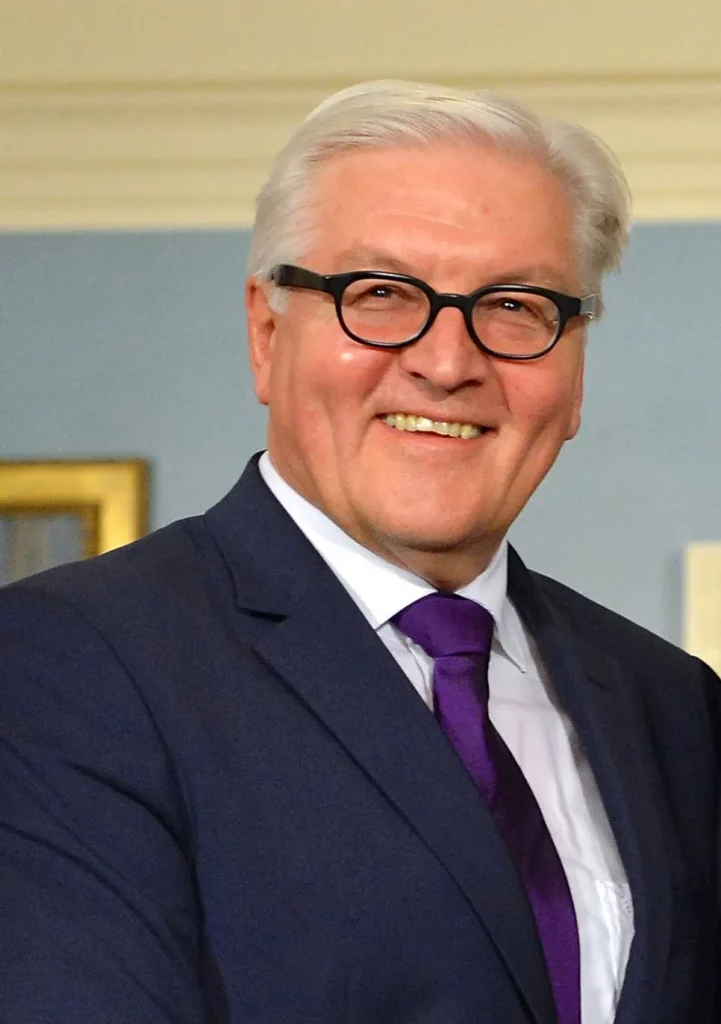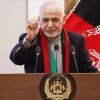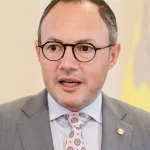Frank-Walter Steinmeier is a German politician and diplomat who has served as the President of Germany since March 2017. As one of the most prominent figures in German politics, Steinmeier has held numerous key positions, including Foreign Minister, and is known for his diplomatic skills and commitment to international peace and cooperation. His tenure as president has been marked by efforts to promote democracy, human rights, and European unity.
Early Life and Education
Frank-Walter Steinmeier was born on January 5, 1956, in Detmold, North Rhine-Westphalia, West Germany. He grew up in a modest, working-class family, and his upbringing shaped his later political views, particularly his emphasis on social justice and equality.
After completing high school, Steinmeier pursued higher education in law and political science. He attended the University of Giessen, where he earned his law degree and later completed a doctorate in law in 1991. His academic background provided a strong foundation for his subsequent political career, especially in areas related to governance and constitutional law.
Political Career Beginnings
Steinmeier’s political career began in the early 1990s when he started working as a legal advisor to the Social Democratic Party (SPD), one of Germany’s major political parties. His work as a policy expert soon earned him recognition, and he quickly rose through the ranks of the party. In 1993, Steinmeier was appointed to work in the office of Gerhard Schröder, then Minister-President of Lower Saxony. When Schröder became Chancellor of Germany in 1998, Steinmeier followed him to Berlin, becoming the Chancellor’s Chief of Staff.
Role as Chief of Staff and Reforms
As Chancellor Schröder’s Chief of Staff from 1999 to 2005, Steinmeier was deeply involved in the development of key domestic policies, including Schröder’s “Agenda 2010” reforms. These reforms, aimed at modernizing Germany’s labor market and welfare system, were controversial but widely regarded as essential for Germany’s economic competitiveness. Steinmeier’s role in implementing these reforms demonstrated his ability to navigate complex political landscapes and solidified his reputation as a pragmatic leader.
Foreign Minister of Germany
Steinmeier’s prominence grew when he became Germany’s Foreign Minister, serving two non-consecutive terms from 2005 to 2009 and again from 2013 to 2017. As Foreign Minister, Steinmeier was known for his measured and thoughtful approach to diplomacy. He played a key role in strengthening Germany’s position as a leading diplomatic power within the European Union and globally.
Steinmeier’s tenure as Foreign Minister was marked by significant international challenges, including the 2008 financial crisis, the rise of terrorism, and the 2014 annexation of Crimea by Russia. His efforts to de-escalate tensions between Russia and the West, including his leadership in the Minsk agreements aimed at resolving the conflict in Ukraine, earned him respect on the world stage. Steinmeier consistently advocated for diplomacy, dialogue, and multilateral cooperation to resolve global conflicts.
Candidacy for Chancellor and Political Leadership
In 2009, Steinmeier ran as the Social Democratic Party’s candidate for Chancellor against Angela Merkel in the federal elections. Despite a well-fought campaign, Steinmeier and the SPD were defeated, and Merkel continued as Chancellor. However, Steinmeier remained an influential figure within the SPD, serving as the leader of the opposition in the Bundestag (the German parliament) from 2009 to 2013.
During his time in opposition, Steinmeier remained engaged in foreign policy discussions and continued to work on issues related to international security, European unity, and the refugee crisis. His moderate approach to politics and emphasis on consensus-building endeared him to many across the political spectrum.
Presidency of Germany
In 2017, Frank-Walter Steinmeier was elected by the Federal Assembly as the President of Germany, succeeding Joachim Gauck. The presidency in Germany is largely a ceremonial role, but it carries significant moral authority and influence. As president, Steinmeier has used his platform to advocate for democracy, social justice, and human rights. His speeches often emphasize the importance of confronting rising nationalism, both within Germany and internationally, and he has been a vocal supporter of the European Union.
Steinmeier has also highlighted the importance of acknowledging Germany’s history, particularly the atrocities committed during World War II, and using that memory to guide the country’s moral responsibilities. His presidency has been characterized by calls for unity, both within Germany’s increasingly diverse society and within Europe as a whole.
Personal Life and Values
Steinmeier is known for his down-to-earth, approachable demeanor, which has contributed to his popularity in Germany. His personal life has also been marked by dedication and resilience. In 2010, Steinmeier donated a kidney to his wife, Elke Büdenbender, who was suffering from a serious illness. The act was seen as a testament to his character and commitment to family, further endearing him to the public.
Steinmeier is an advocate for education, social welfare, and protecting democratic values. He often speaks about the dangers of political polarization and the importance of maintaining a vibrant civil society. His belief in diplomacy and multilateralism reflects his deep commitment to international peace and cooperation.
Conclusion
Frank-Walter Steinmeier is a highly respected German statesman whose career spans decades of public service. From his early days as a legal advisor to his influential role as Foreign Minister and ultimately as the President of Germany, Steinmeier has consistently demonstrated a commitment to diplomacy, social justice, and democratic principles. As president, he remains a key moral voice in Germany, advocating for unity, peace, and the protection of human rights in an increasingly complex and divided world.



